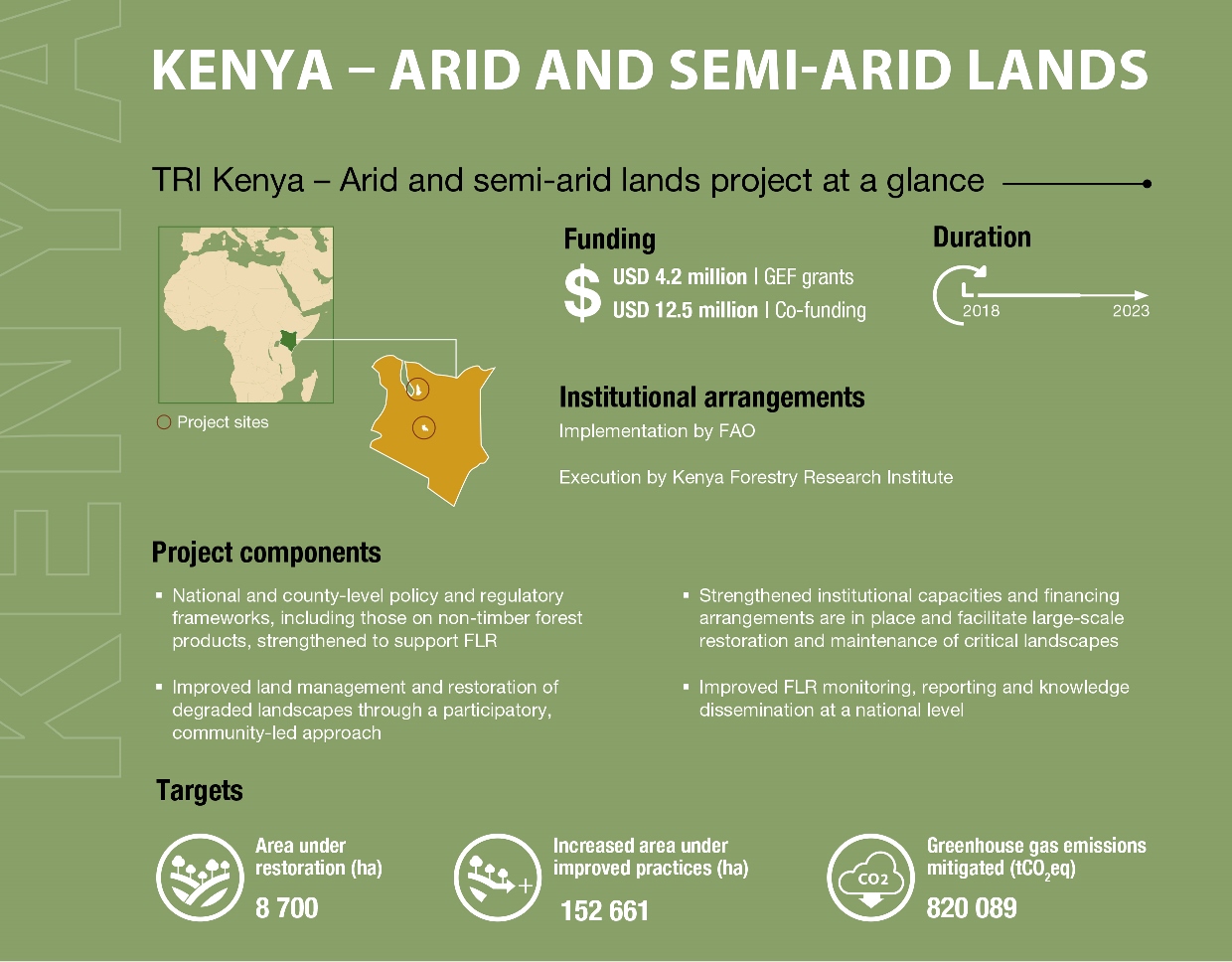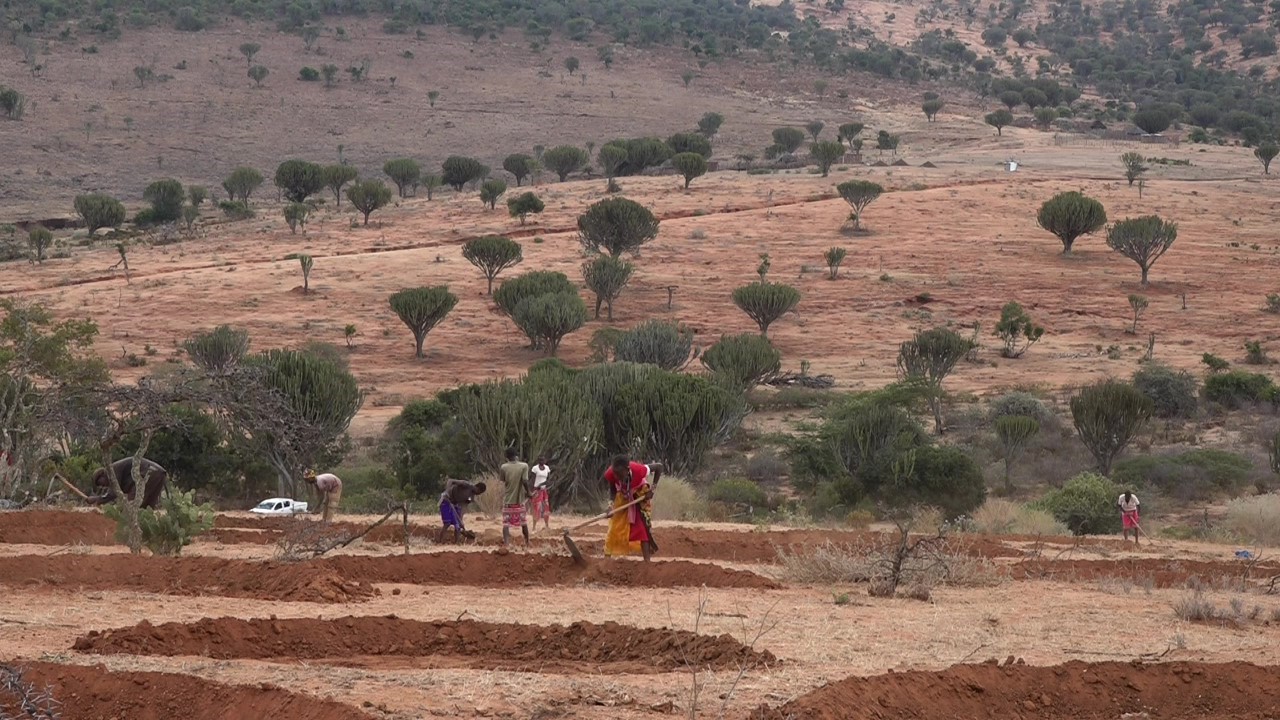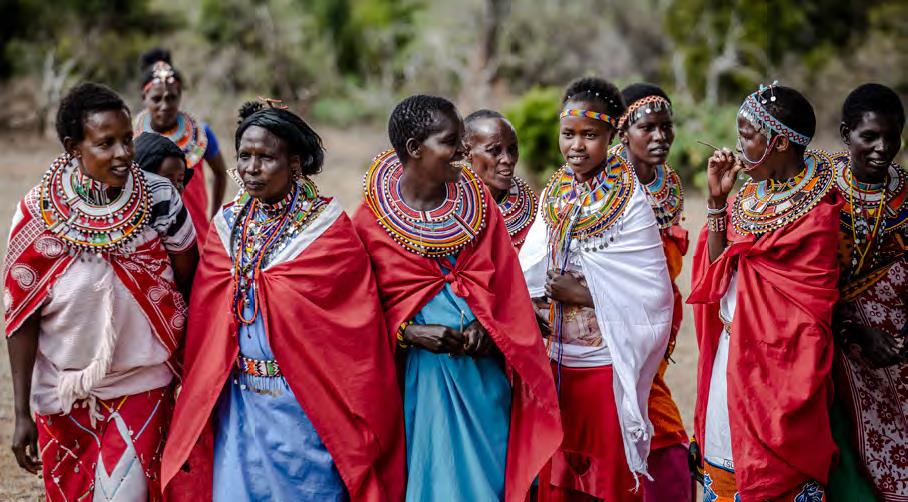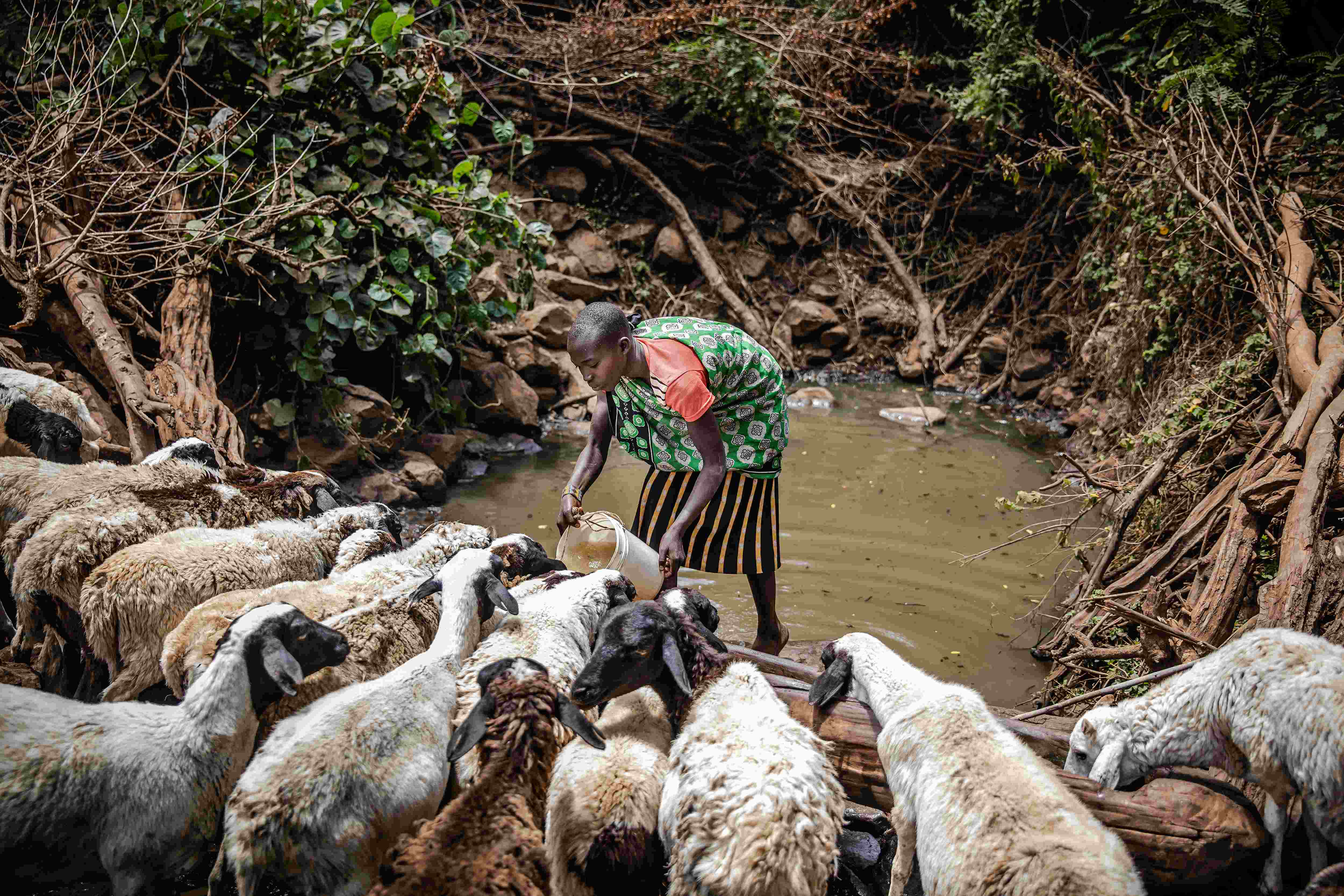Over 80% of Kenya’s lands are classified as arid and semi-arid (ASAL), based on the relatively low amounts of annual rainfall received. Often marginalised, and with high rates of poverty, the 16 million people residing in these areas (~30% of Kenya’s population) earn their living principally through a mix of pastoralism and small-scale agriculture. ASALs are particularly susceptible to droughts and flooding, and with increasing impacts from climate change, these areas are considered to be at risk of desertification. Moreover, a large percentage of ASALs have been degraded from deforestation and overgrazing, which further reduces the productivity of these lands, threatening food security, livelihoods and biodiversity.
TRI’s Kenya ASAL project is working to address these challenges by providing alternative models for sustainable land management, restoring degraded lands, and supporting the development of diversified livelihood options, which include enhanced use of non-timber forest products (NTFPs), such as gum resins, honey and agave, as well as through the development of ecotourism.
The project is being implemented in two different areas: Mount Kulal Biosphere Reserve in Marsabit County, and Mukogodo forest and landscape in Laikipia and Isiolo Counties.
As with all TRI projects, the Kenya ASAL project is working across the four intervention areas of policy, restoration, capacity building and knowledge sharing to reduce the overall proportion of degraded land by 20% in the areas targeted. On the policy front, the project will work to support the integration of enabling policy on NTFPs for clarifying access and benefit-sharing from the use and sale of NTFPs. A national action plan on forest landscape restoration (FLR) will also be developed with the aim of accelerating interventions on the ground to restore and sustainably manage deforested and degraded landscapes.
Restoration work includes support for participatory development of sustainable pasture management plans, by shifting grazing away from degraded core zones of the forest and allowing natural regeneration to take place. In the Mukogodo area, the project will support the development of management plans for group ranches, as well as support for establishing tree nurseries to aid in tree planting campaigns in the Mukogodo Forest.
To support the development of sustainable livelihood options, the project supports a range of activities, including assessments of the commercial viability of different NTFPs in project areas, awareness raising and capacity building, including entrepreneurship training and linkages with ongoing Forest and Farm Facility supported work in Kenya, and the development of marketing and commercialization strategies for identified products. NTFPs include berries and fruits, honey, gums, nuts, vegetables, fish and game, medicinal plants, essences, and a range of barks and fibres, such as bamboo, rattans and a host of other palms and grasses. In many rural areas throughout the world including in Kenya, governments and development agencies have been encouraging the sale and domestication of NTFPs as a way of boosting incomes for rural households and food security. As part of these efforts, TRI’s Kenya ASAL project contracted a private-sector development expert to undertake a value chain analysis of NTFPs in Isiolo, Laikipia and Marsabit Counties.




